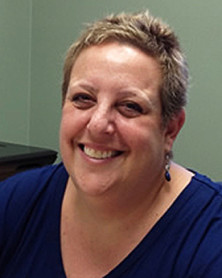What is Internal Family Systems Therapy (IFS)?
By Dr. Judi Addelston, Ph.D., Certified Internal Family Systems (IFS) Therapist, Professor of Psychology at Valencia College
There’s a part of me….
How often do we say to ourselves something like “part of me knows I need to work today, but another part of me really wants to relax”! We are all made up of various parts – our feelings, thoughts and beliefs. Our parts can be helpful – a ‘manager’ part that helps us get to places on time and work efficiently; or they can be maladaptive – a part that drinks too much, or goes into a rage very quickly. And then we have the parts of ourselves that we don’t want to deal with – our hurt, pain, despair, shame, and guilt. Sometimes we think that if we even open that door, we will be flooded with pain and it will never end. IFS provides a gentle, respectful, and effective way of looking at our internal system of parts, how they work together, and how we can relieve the pain and burdens we carry to live happier and more effective lives.
How our parts work together
Here is a typical scenario – Jane, 38, comes to counseling because she feels overwhelmed and stressed everywhere in her life. She is fighting with her husband, cranky with her children, and never feels she can relax. The therapist asks where she feels this sense of overwhelm and stress in her body, and she says it’s like a knot in her stomach. In dialoguing with this “knot” we find a part that believes if it lets her relax, nothing will get done and her life will fall apart. As we work with this ‘overachieving’ part, we find out that it showed up when she was 15 and her parents were going through a nasty divorce.
The ‘overachieving’ part showed up then to help her cope with her anxiety about her family situation. We then move to her ‘anxious’ part and discover that it felt trapped when Jane was a teenager and had no control over what was happening to her family. We can see that the ‘overachieving’ part is there to protect the ‘anxious’ part from feeling too much distress – if Jane is always working and doing things, then there is no time to feel anxious.
The therapist then guides Jane through dialogue and imagery to help these parts relieve the burdens they carry – the anxiety and the belief that she must always be on guard. We ask these parts what they would rather do if they didn’t have to be stuck in those roles. This involves updating these parts so that they can now see that Jane is 38 and can handle her own emotions. Remember, these parts showed up when they did not think that Jane could take care of herself during her teen years, and they have been stuck there ever since. Now, free of the distress of her parent’s divorce, the ‘anxious’ part can now relax. Once the ‘anxious’ part relaxes, the ‘overachieving’ part does not have to work so hard to protect it. These parts can now take on new roles and feelings that are calmer, clearer, more confident, and free of their old burdens. Jane’s system can now begin to allow her to engage in relaxing activities as she gets more done in less time. Jane finds she is no longer snapping at her family because she feels much less stress, and can now feel more connected to them.
Self-Leadership
The ultimate goal of IFS therapy is Self-Leadership – the idea that everyone has at their core a sense of Self-Energy containing many crucial leadership qualities such as perspective, confidence, compassion, and acceptance. This means that we are no longer overwhelmed or governed by our parts, but feel the eight Cs of Self-Leadership:
- Calmness
- Curiosity
- Clarity
- Compassion
- Confidence
- Creativity
- Courage
- Connectedness
When we are Self-Led, our parts may still show up (Jane might feel anxious around Thanksgiving having to deal with both sides of her family) but they no longer overwhelm us. We have the Clarity to deal with situations effectively. We feel Calm and Compassionate with ourselves and others. We are Confident and Courageous where we used to feel hurt or scared. Our Creativity (humor, art, cooking) can flourish with more energy in our system. We learn to feel Curious about our inner world (and others’ systems) rather than critical or judgmental. Above all – we are Connected to our inner system, no longer at the mercy of our parts and their extreme burdens, ideas, or behaviors. We are the person we have always wanted to be.
Resources
The Internal Family Systems model was developed by Richard Schwartz, Ph.D. To learn more about this model of therapy, or to find an IFS therapist in your area, please visit www.selfleadership.org for more information.
Contributor: Judi Addelston received her Ph.D. in Social and Personality Psychology from the City University of New York. She is a Professor of Psychology at Valencia College in Orlando Fl., where she currently chairs the Psychology Department. She is a Licensed Marriage and Family Therapist (LMFT) and a Florida Approved Supervisor for both Mental Health Counseling interns and Marriage and Family Therapist interns. A Certified IFS Therapist in practice over 15 years, she specializes in trauma, relationships, family-of-origin issues, lifestyle and gender/sexuality identities, as well as addiction and recovery. Judi has a private practice in Winter Park, Florida where she sees clients both in person and on Skype. Please visit her website at www.judiaddelston.com.

